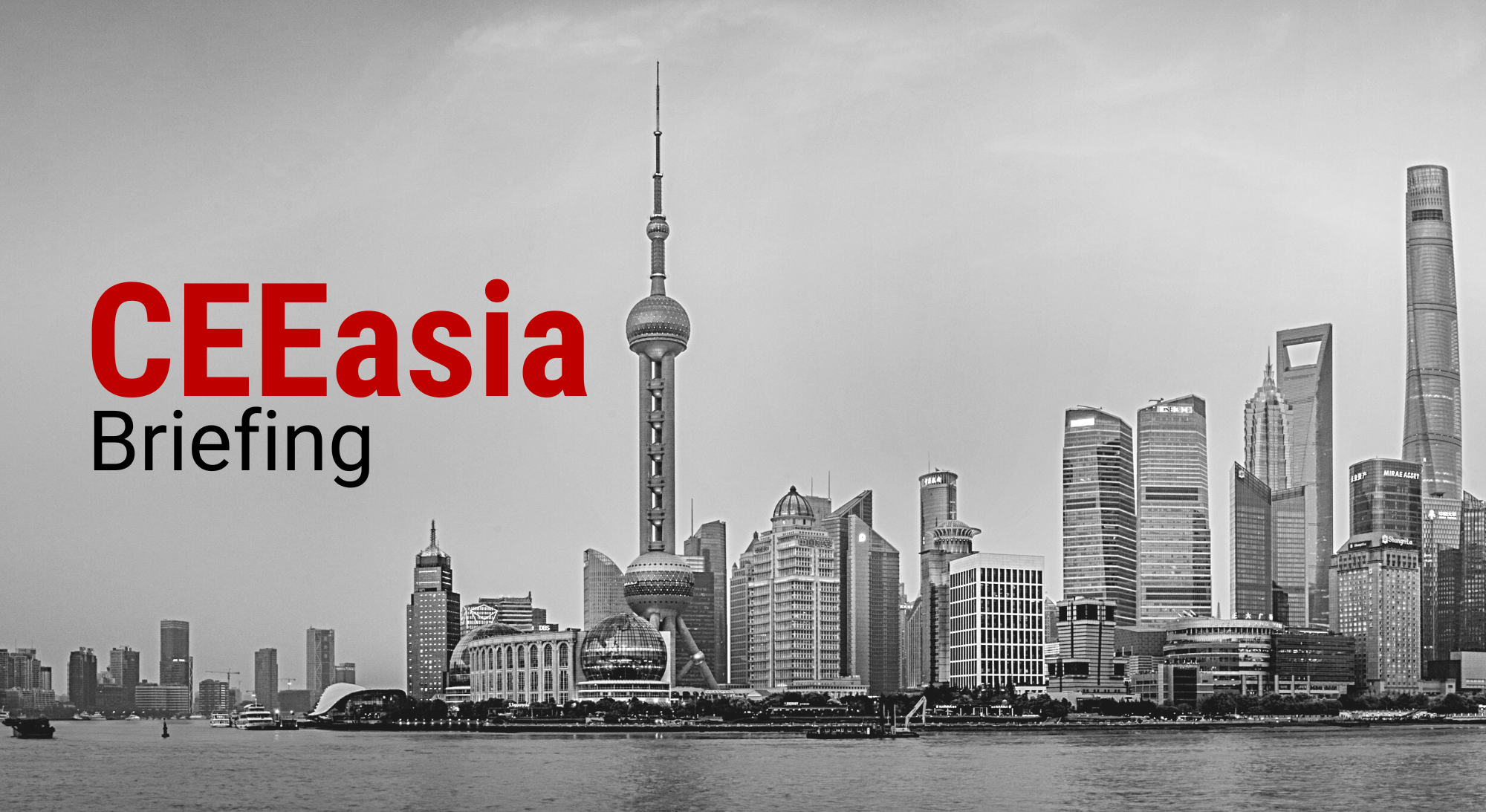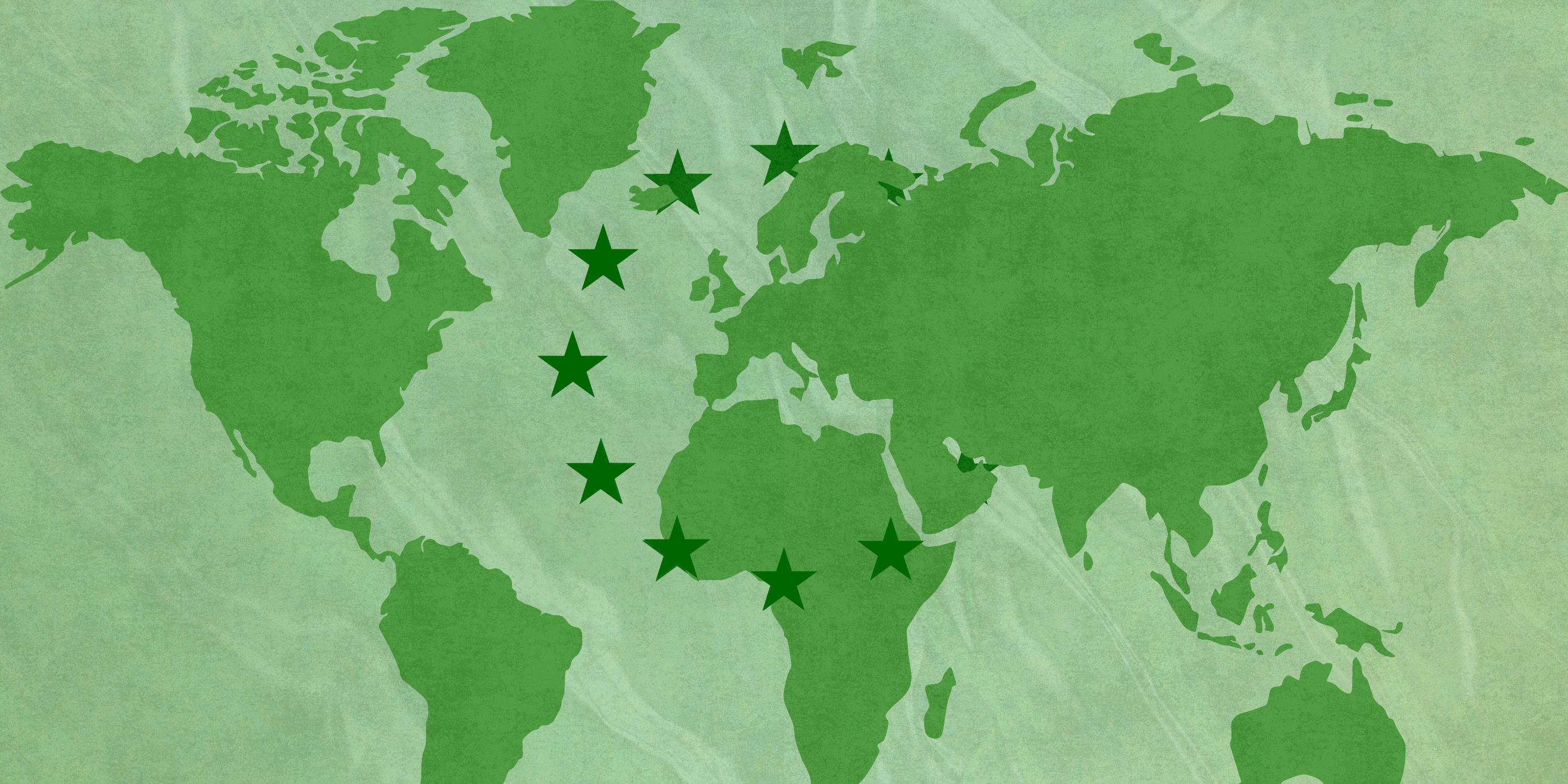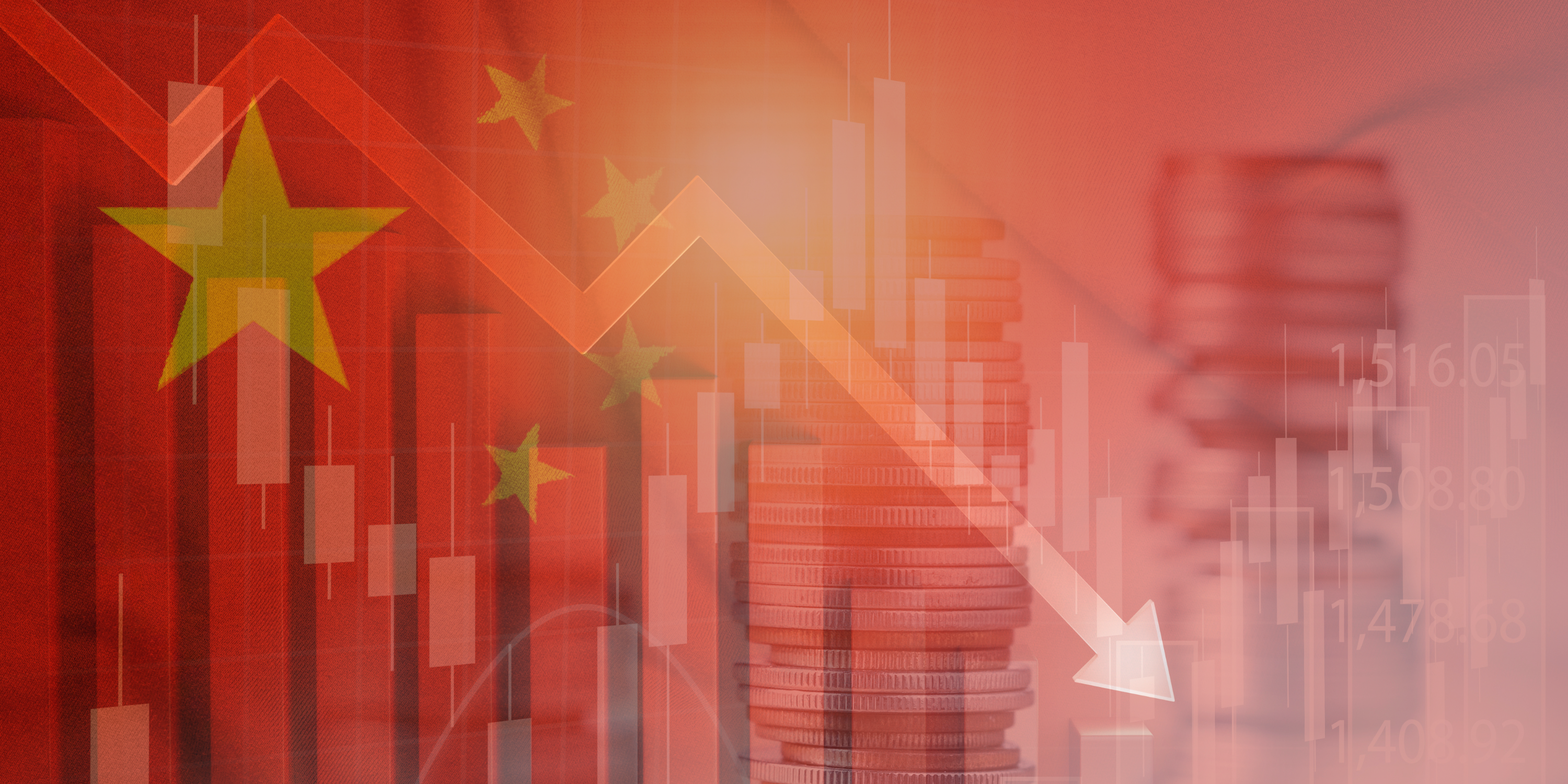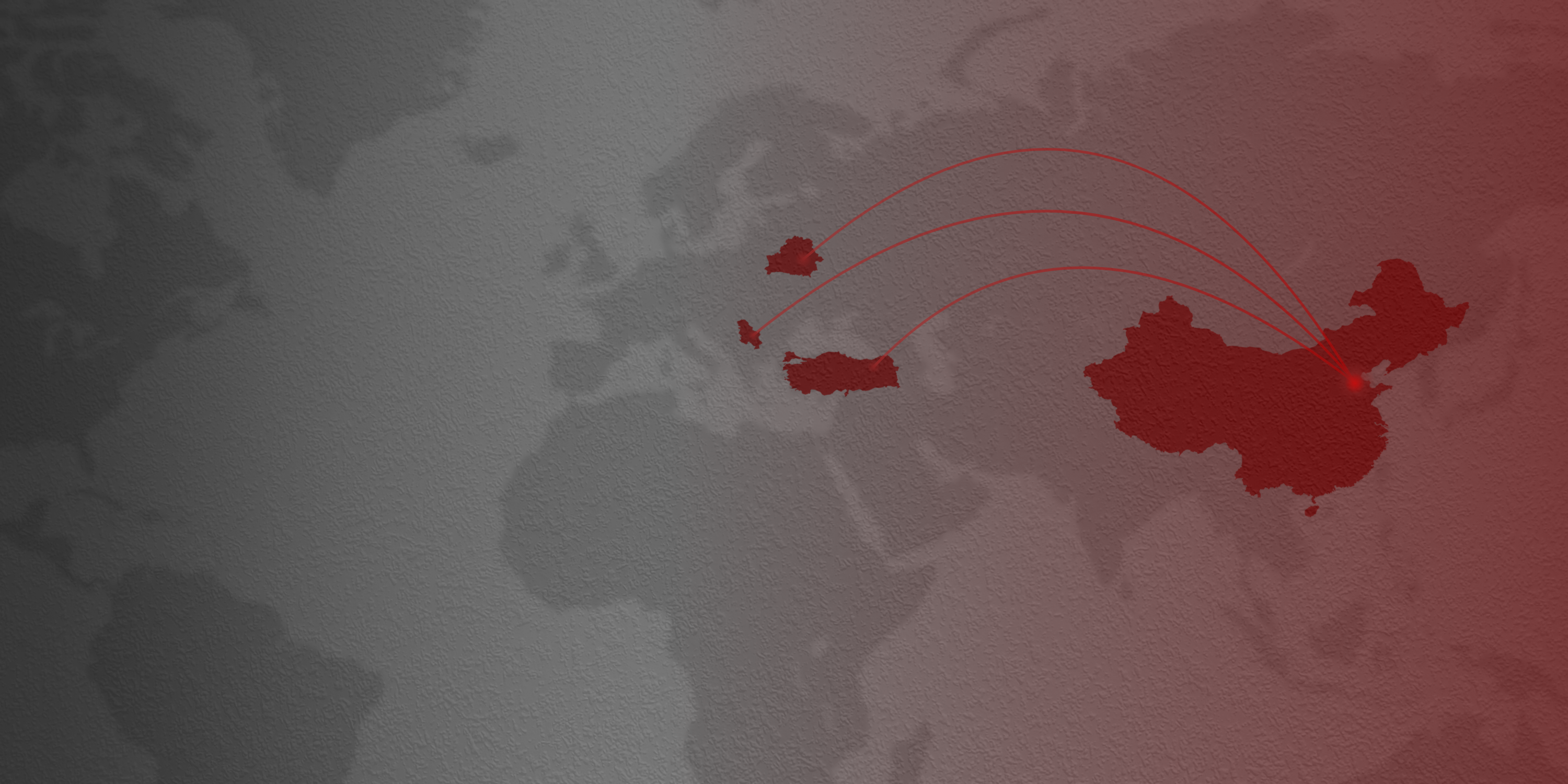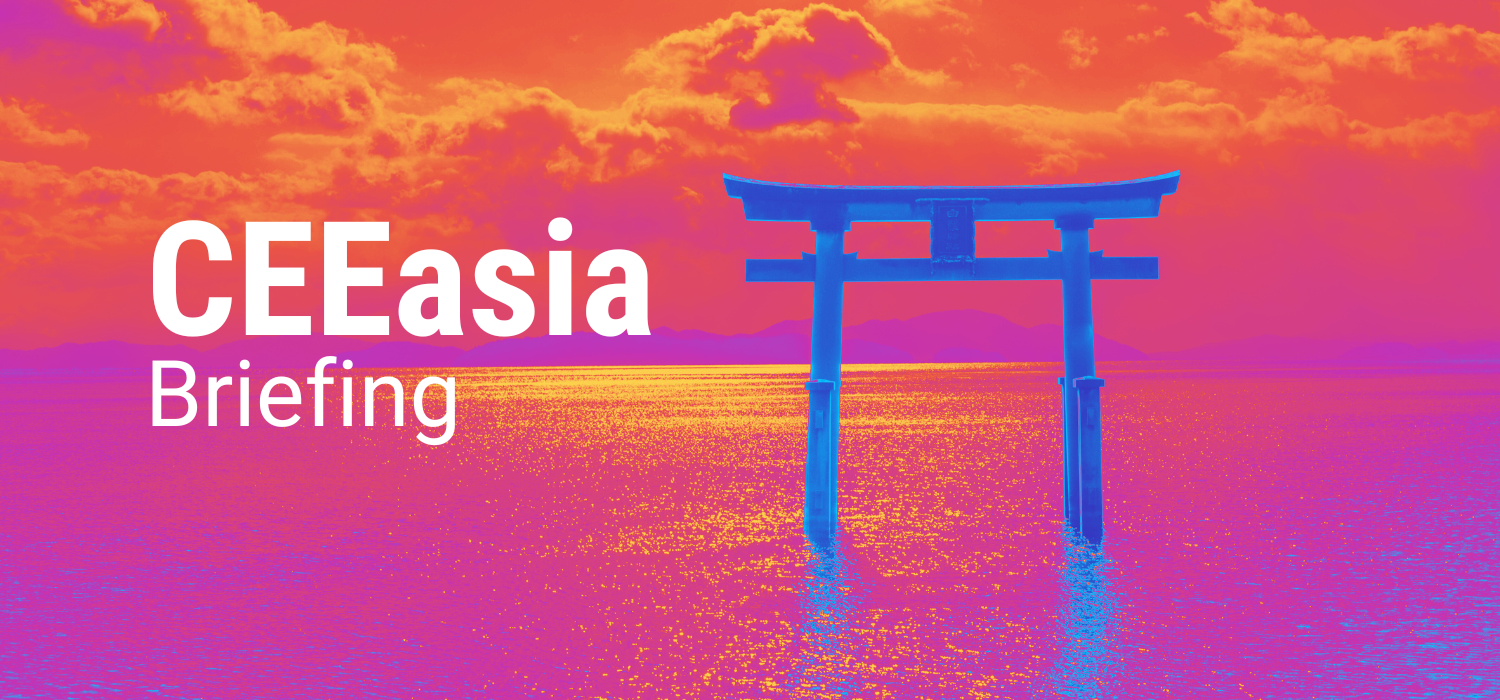Welcome to the 27th issue of the #CEEasia Briefing.
In this issue we dissect the following topics:
- China’s role in the Russian invasion of Ukraine
- Hungary’s shifting stance on China and Russia
- Elections in South Korea and the role of war in Ukraine
Do you need to know more about East Asia? Don’t hesitate to shoot us a message about custom analysis tailored to your needs.
1. China’s role in the Russian invasion of Ukraine
What’s going on? China has found itself in a difficult position as the conflict in Ukraine continues and the international community is seeking a way to facilitate peace talks. Ukraine has, along with the EU’s High Representative for Foreign Affairs and Security Policy Josep Borrell, called for China to play a role in the mediation between Moscow and Kyiv. Nonetheless, Beijing remains largely silent, with the US recently suggesting it has even considered providing military assistance requested by Russia.
Going deeper… Chinese Minister of Foreign Affairs Wang Yi repeatedly referred to Russia as China’s “most important strategic partner”, a statement which is grounded in the “no limit” partnership, an agreement signed between the two powers on the sidelines of the Winter Olympics. Unsurprisingly, Beijing has refused to condemn Moscow’s invasion, claiming that condemnation alone would not “solve the problem”. China has also been perpetuating anti-Western and pro-Russian narratives while calling the “Ukraine situation” a “complex” one. Consequently, such an ambiguity in the Chinese stance had the West concerned about its possible military assistance to Russia. Indeed, both the US and EU warned China against doing so, stressing trade barriers and sanctions that could be imposed on China should it proceed with Russia’s request for assistance.
This means… China agreed with Germany and France on coordinated efforts to find a diplomatic solution to the war. Nevertheless, Beijing does not seem enthusiastic to use its influence, lacking the willingness to lead any negotiations since doing so could get China into an even more uncomfortable position. It could not only jeopardize close ties with Russia, a major ally in its growing power rivalry with the US but also severely damage its previously strong economic and defense ties with Ukraine. Simultaneously, China is unwilling to be perceived as submitting to Western demands, since such compliance with the US could easily boost the latter’s role as a global leader, a result that China does not want to see.
Further reading:
DW: Can China broker peace between Russia and Ukraine?
POLITICO: EU has ‘very reliable evidence’ China is considering military support for Russia
SCMP: Russia’s war on Ukraine: ‘It has to be China’ as mediator, EU foreign policy chief says
2. Hungary’s shifting stance on China and Russia
What’s going on? There are signs that the Fidesz party in Hungary has been slowly shifting its position on China. The Hungarian authorities have expressed support for China’s role as a mediator in the Ukrainian war which is largely in line with the foreign policy of the EU. But following the NATO summit in March, Hungary finally acquiesced to the requests for further NATO deployments within its territory.
However! Budapest still appears to be leaning towards Beijing when it comes to the war in Ukraine. Following a phone call with his Chinese counterpart Wang Yi, the Hungarian Minister of Foreign Affairs Péter Szijjártó expressed his hope for China’s role as a mediator. This stance, which mirrors Beijing’s own narrative, needs to be understood in terms of Orbán’s signature ‘Eastern Opening’ policy that was intended to reduce Hungary’s dependence on western financial institutions through closer economic cooperation with Moscow and Beijing.
Indeed… Orbán’s frequent trips to Moscow and Beijing attest to his closeness to both Russian and Chinese leaders. For instance, amidst the pre-invasion crisis at the Ukrainian border, Orbán made a trip to Moscow to request an increase in Russian gas supplies. And more importantly, Fidesz officials have previously emphasized that Hungary will not get involved in the war, using this as a justification for their refusal to allow further NATO troops to be deployed in Hungary.
What does this all mean? Despite current close ties between Hungary and China, the future of the relationship seems rocky at best. Hungary’s decision to agree with NATO deployments in March is a worrying development for China and its ambiguity on the Ukrainian conflict, particularly as Wang Yi’s and Xi’s flurry of diplomatic calls with different European leaders may not bring about the intended outcomes. In addition, with the EU increasingly linking China with Russia and aligning itself closer to the US, not even Orbán will be able to ameliorate the further worsening of Sino-European relations.
Further reading:
HUNGARY today: FM Szijjártó: China Can Play Key Role in Preventing Escalation of War
Bloomberg: Xi’s Europe Outreach Aims to Avert East-West Clash for China
ECFR: Alignment or isolation: Hungary’s foreign policy after its parliamentary election
3. Ukraine as an issue in South Korea’s presidential election
What’s going on? Russian aggression against Ukraine resonates around the world and East Asia is no exception. However, with the media’s focus on China and its ambiguity on the whole issue, the stances of other East Asian leaders have received less attention.
Going deeper… Although the war was dragged into the South Korean presidential debate, both candidates used it to primarily criticize and attack the other. Violations of international law, sovereignty issues, and the humanitarian crisis remained secondary. The defeated candidate of the ruling Democratic Party Lee Jae-myung called Ukrainian President Volodymyr Zelenskyy an inexperienced politician whose public declaration of Ukraine’s intention to join NATO provoked Russia. Lee’s intention was to draw parallels between Zelenkyy and his opponent Yoon Suk-yeol, whom Lee described as “coarse and violent”, arguing that Yoon’s hard-line security platform would provoke North Korea and China.
Indeed… This mirrors the Democratic Party’s traditionally more cautious approach to South Korea’s relations with its neighbors. Yoon, who won and will thus assume office on 10th May, accused Lee of abusing the Ukrainian suffering in a political duel and criticizing a leader who is at the forefront of Kyiv’s determined resistance. Still, Yoon did not avoid controversy either after he expressed his support for Ukraine with a picture of an angry-looking orange on Twitter, which was deemed by many as inappropriate and later deleted.
What about the rest of Northeast Asia? Japan was among the first countries to join the sanctions against Putin’s regime. The government of Prime Minister Kishida Fumio was in this respect more decisive than the government of Abe Shinzo in 2014 after Russia annexed Crimea. The main reason for Abe’s hesitancy was his effort to maintain good ties with Russia to reach a final settlement over the Northern Territories, also known as the Kuril Islands. This time around, however, Japan not only froze Russian assets and blocked Russian companies from accessing SWIFT, but also provided Ukraine with 200 million USD in loans and humanitarian aid. The Kishida administration has therefore taken a tough stance on Russia, despite Japan’s high-level sensitivity to the stability of energy supplies, with Russia supplying up to 4% of its oil and 9% of its LNG.
Taiwan, which is closely following the situation in Ukraine, has also joined the international community in its outpouring of support despite the island nation’s lack of diplomatic relations with Ukraine. There is extensive financial support for displaced Ukrainians coming from Taiwan, with the top officials, including the President, the Vice President, and the Premier, all pledging to donate their monthly salaries. Taiwan also sent material aid, especially food, medicine, and medical supplies, with the assistance being closely coordinated with Poland and Slovakia.
Further reading:
NIKKEI Asia: South Korea presidential hopefuls spar over Ukraine as poll nears
DW: Ukraine conflict: Japan stiffens resolve on Russia, but it comes with a price
Focus Taiwan: Taiwan to donate NT$100 million to help Ukrainian refugees in Poland

